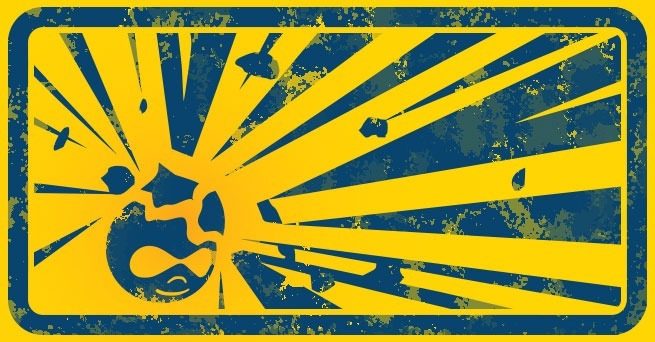Last month, the widely used open source website development platform, Drupal, dropped some good news and some bad news. The amazingly good news was the release of Drupal 8, on November 19th, 2015. The new platform includes over 200 new features improvements since Drupal 7. This is exciting news to website developers everywhere.
The bad news is that after February 24th, 2016, Drupal 6 will reach end of life and will no longer be supported. Since the Drupal Community only supports the latest two versions of Drupal, every new release prompts the end of an older version, which in this case is Drupal 6.

The Effect on Drupal 6 Websites
So what does this mean to those with websites built with Drupal 6? If your website was built with Drupal 6, you don’t necessarily need panic – yet. If you haven’t yet upgraded your site from Drupal 6 to 7 or 8, your site will not spontaneously combust.
However, although sites built on D6 will continue to exist and run, after February 24th, they will not be supported by the Drupal Community with regards to module and security updates, the creation of new projects, fixing existing bugs, etc. Long-time Drupal Community members indicate that continuing to support Drupal 6 would be difficult for a variety of reasons, but mainly due to the shift of volunteers towards the support of Drupal 8.
Because of the lack of Drupal Community support for Drupal 6 come late February, the potential ramifications of keeping your site in Drupal 6 after its end of life date may include security vulnerabilities, functionality issues that take longer to repair, browser incompatibility, and more. The main issues that will affect websites that haven’t undergone a Drupal migration to D7 or D8 after February 24, 2016 include:
1. Security
If your website collects and stores sensitive customer data such as credit card and/or personal identity information, it will no longer be able to provide the essential security patches needed to keep your site secure. By not upgrading your Drupal 6 site, you will be leaving your site extremely vulnerable to security issues related to e-commerce and more.
2. Functionality
If your website has any functionality issues, they will unfortunately not be easy to repair. Since the focus will now be on fixes for Drupal 7 and the continuous support of Drupal 8, no additional time will be spent on the development of new or improved functionality for Drupal 6.
Plus, many hosting providers will be shifting their support to newer versions of the PHP programming language from their available shared hosting packages. If your hosting provider no longer supports the version of PHP used by your Drupal installation, your site won’t function properly until the issue has been resolved.
Since many smaller businesses run their site using a shared hosting package for affordability reasons, the impact could be widespread.
Avoiding Security and Functionality Issues
To avoid serious security and functionality issues, you should plan to upgrade your Drupal 6 site sooner rather than later. If you don’t have the resources to perform an upgrade before the Drupal 6 end of life date, there may be another temporary option, although it won’t be free.
There have been discussions that the Drupal Security Team is working with some vendors who may be willing to provide paid support for Drupal 6 sites after February 24th, 2016, but the details on this won’t be available until sometime in January. Your best option though, is to bite the bullet and plan to upgrade to Drupal 7 or 8, rather than prolong the inevitable.
Drupal 7 or Drupal 8?
The next step is to evaluate whether or not you should move to Drupal 7 or Drupal 8.
There are many benefits of moving to Drupal 8 including, mobile, international, editing and performance enhancements. However, not all modules are currently available and might not be ready for some time.
While Drupal 7 site users will need to transition to Drupal 8 once the next version of Drupal (D9) come out, historical data indicates that this might not be until 2019. So, Drupal 7 users will have some time before the next upgrade is necessary.


